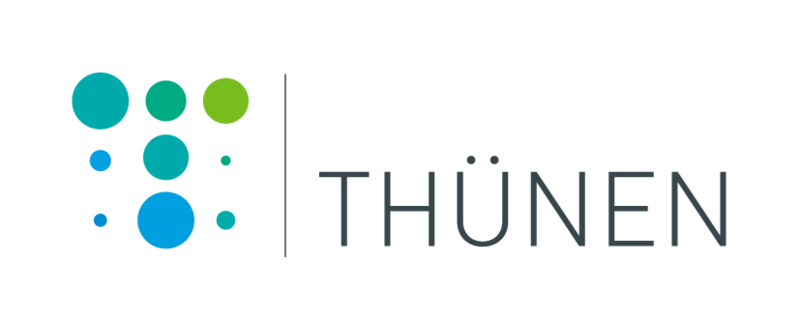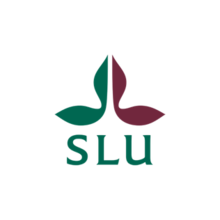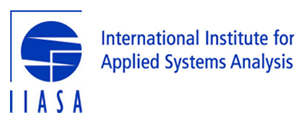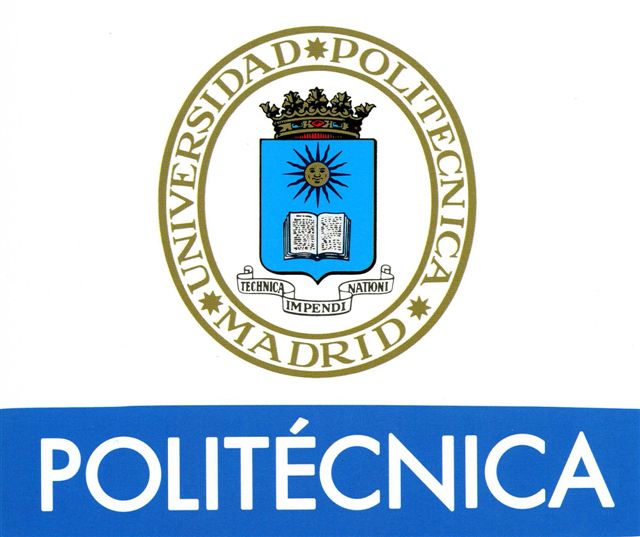Partnership
The SUPREMA Partnership combines resources and institutions across EU Member States that host ‘core‘ models currently applied to support the policy decisions by impact assessments in ag-riculture, trade, climate and bioenergy policies.
Company profile
Stichting Wageningen Research (Wageningen Research Foundation, WR) consists of a number specialised institutes for applied research in the domain of healthy food and living environment. WR collaborates with Wageningen University under the external brand name Wageningen University & Research. The research institutes involved in this proposal, Wageningen Economic Research and Wageningen Environmental Research, are two of the research institutes within the legal entity Stichting Wageningen Research.
WR has a strong track record of multidisciplinary projects and is involved in hundreds of EU-funded projects (FP7 and Horizon 2020) and many other large national and international research projects. One of the strengths of Wageningen University & Research (including WR) is that its structure facilitates and encourages close cooperation between the approximately 3000 experts from Wageningen University and various renowned research institutes. These institutes cover a wide range of expertise including food technology, plant, animal and economic sciences.
Wageningen Economic Research (formerly known as LEI Wageningen UR) is an internationally leading socio-economic research institute that offers governments and companies (socio)economic insights and integral advice for sound policies and better decision-making in an innovative way.
The strength of Wageningen Economic Research lies in developing new insights based on market intelligence (fact and evidence based information) and its integrated approach to issues. Wageningen Economic Research has a nationally and internationally proven track record and extensive experience in setting up and carrying out policy analyses, including social cost/benefit analyses, impact evaluations, and future studies, as well as market and chain research, consumer research and the development of monitoring system for industry. It relies on high-quality market and chain knowledge, a wide and international knowledge network, and unique data and models from the micro to the macro level. Among Wageningen Economic Research’s clients are governments, the European Commission (amongst others to DGs AGRI, SANCO, MARE and TRADE), businesses and organisations. Also, the institute is performing an increasing amount of research and consultancy in developing countries. It has experience in leading large-scale international projects involving a number of different public and/or private parties.
Wageningen Environmental Research (Alterra) is a leading research institute in the area on ‘our green living environment’. We offer a combination of practical, innovative and interdisciplinary scientific research across many disciplines related to the green world around us and the sustainable use of our living environment. Wageningen Environmental Research focuses on aspects such as flora and fauna, soil, water, climate, vegetation, land cover and land use, the use of geo-information and remote sensing, landscape and spatial planning, forestry, recreation and its governance. Wageningen Environmental Research engages in integrated research to support design processes, policy-making and management at the local, national and international levels. Wageningen Environmental Research has about 400 staff members and combines a wide range of expertise for integrated agri-environmental assessments, climate change impact assessment and for studies related to rural areas and their sustainable use. Wageningen Environmental Research has been partner or coordinator of a range of service contracts for the European Commission (DG CLIMA, DG ENV, DG ENERGY and DG AGRI) and in the Framework Programs.
Company profile
EuroCARE GmbH Bonn is a consultancy focusing on agricultural and environmental policy issues. The close interlinkage with the Institute for Food and Resource Economics, department Economic and Agricultural Policy, of the University of Bonn, guarantees academic collaboration on a high level. Project teams are selected according to requirements. Our expert pool consists of four permanent staff members, EuroCARE partners and other experts from EU Member States.
EuroCARE Bonn was founded in Bonn in 2000 as the successor of EuroCARE Luxemburg/Bonn, which had focussed on consultancy services for the European Commission's DG "Agriculture and Rural Development" since the 1990. By now, EuroCARE's main customers are various public and private organisations that deal with agricultural and environmental policy or are affected by it.
EuroCARE analyses rely most frequently on applications of the CAPRI model. The comprehensive approach of the CAPRI model considers economic and environmental interrelations of production activities and their effects on markets in Europe and globally. The model integrates statistical and technical information from various sources, among which Eurostat is the most important one. Completed projects include outlook work for agriculture as well as several analyses of the potential effects, economic and environmental, of reforming the EU's CAP (Common Agricultural Policy) and environmental or climate policies.
Company profile
The Johann Heinrich von Thünen Institute (TI) is one of four German federal research institutes under the auspices of the German Federal Ministry of Food and Agriculture (BMEL). The TI was created on January 1, 2008 from the German Federal Research Centre for Fisheries, the German Federal Research Centre for Forestry and Forest Products and part of the German Federal Agricultural Research Centre.
The TI, employing around 900 researchers, drafts scientific basics as decision-making helps for the policy of the German federal government and thus serves, with its application oriented and practice related research, the development of the society of tomorrow. In 14 specialized institutes TI pursues interdisciplinary research in the following areas: economics (micro and macroeconomics of agriculture, forestry, lumber, food and fish production), technology, material use of renewable natural resources, climate, biodiversity, organic farming.
Company profile
SLU develops the knowledge about how to use natural, biological land and water resources in a sustainable manner. Education, research and environmental monitoring and assessment are pursued at some thirty locations all over the country. The main campuses are Alnarp, Umeå and Uppsala.
SLU, department of economics, is part of AgriFood Economics center. AgriFood provides economic expertise in the fields of food, agriculture, fishing and rural development. The Centre, which consists of the Swedish University of Agricultural Sciences (SLU) and Lund University, is a platform for applied research. The aim is to supply government bodies with a solid foundation supporting strategic and long- term policy choices.
Company profile
As the European Commission's science and knowledge service, the Joint Research Centre's mission is to support EU policies with independent evidence throughout the whole policy cycle. Its work has a direct impact on the lives of citizens by contributing with its research outcomes to a healthy and safe environment, secure energy supplies, sustainable mobility and consumer health and safety. Through its Directorate for Sustainable Resource in Ispra and Seville, the JRC conducts research in the field of agriculture and the environment.
The JRC draws on over 50 years of scientific experience and continually builds its expertise. Located across five different countries, the JRC hosts specialist laboratories and unique research facilities and is home to thousands of scientists working to support EU policy.
While most of our scientific work serves the policy Directorates-General of the European Commission, it addresses key societal challenges while stimulating innovation and developing new methods, tools and standards. It shares know-how with the Member States, the scientific community and international partners. The JRC collaborates with over a thousand organisations worldwide whose scientists have access to many JRC facilities through various collaboration agreements. The JRC is a key player in supporting successful investment in knowledge and innovation foreseen by the Horizon 2020 Work Programme, the EU’s programme for research and innovation.
Company profile
The International Institute for Applied Systems Analysis (IIASA) (www.iiasa.ac.at) is a non-governmental, multi-national, independent organization devoted to interdisciplinary, policy-oriented research focusing on selected aspects of environmental, economic, technological and social issues in the context of global change. IIASA’s research is organized around fields of policy importance rather than academic disciplines. IIASA investigators perform interdisciplinary research that combines methods and models from the natural and social sciences in addressing areas of concern for all societies. IIASA is well-known for: energy, forestry, population, climate change, risk and vulnerability, adaptation and mitigation, technology, air pollution, land use, and mathematical Special emphasis is put on supporting policy makers in developing rational, realistic and science-based regional, national and global strategies for the production of food, feed, fibre, and bio-energy that sustain ecosystem services, safeguard food security, and promote rural development. IIASA is in particular actively involved in economic research on the food and agricultural system at the European and at the global level. The land use model GLOBIOM has been used to support EU policies impact assessments for different directorates of the European Commission (DG CLIMA, DG ENV, DG ENER).
Company profile
Universidad Politécnica de Madrid (UPM) - Technical University of Madrid is the largest Spanish technological university. With two recognitions as Campus of International Excellence, it is outstanding in its research activity together with its training of highly-qualified professionals, competitive at an international level. More than 2,400 researchers carry out their activity at the UPM, grouped in 204 Research Groups, 19 Research Centers or Institutes and 55 Laboratories, all of them committed to transform the knowledge generated into innovation advances applied to the production sector, contributing to solve the challenges of the European citizens. The intense collaboration with governmental bodies and industry guarantees that research at the UPM offers real solutions to real-world problems.
UPM is an internationally leading centre in agroforestry research, with a strong commitment towards the transfer of knowledge to society. Research activities at the Department of Agricultural Economics focus on: (1) ex-ante and ex-post integrated assessment and modelling of agricultural and environmental policies; (2) analysis of the tradeoffs and synergies between economic development and environmental goals; (3) agricultural bioeconomics; and (4) water-energy-food nexus in a context of global change.







